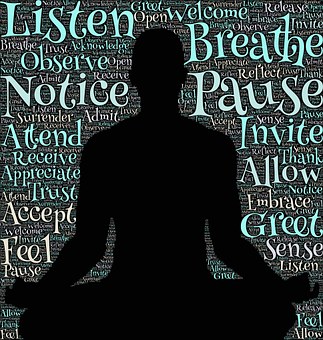Are you Stressed Out?
Stress has been with us since the beginning of time. Short term acute stress is manageable and actually good for us; it prompts us to get things done and accomplished. However, long term chronic stress is a big contributing factor to poor health. In fact, 90% of all doctor’s visits are from a result of stress.
Today, we are bombarded with so many different types of stress. Careers, deadlines, conflicts, family, relationships, overbooked schedules, social obligations, and finances are just a few of the issues many people say that they stress about. 
Furthermore, there are other lifestyle factors that are not so obvious but also affect one’s health. A poor diet filled with processed foods, environmental toxins, poor air quality, sedentary jobs, lack of relationship or connections, and inadequate sleep are all stressors to the body and negatively affect our health.
The Body’s Stress Response
Stress can manifest itself in a multitude of ways. Some experience physical symptoms like an upset stomach or digestive issues, recurring headaches, or elevated blood pressure. Others may experience anxiety, depression, loss of motivation or even brain fog. Stress can also show up as pain or loss of function, like neck or back pain, burning between the shoulder blades, trouble sleeping and hormone irregularities.
These are all not diagnoses or “conditions”, rather symptoms of an underlying problem. It is the body’s way of responding to stress! Our body communicates with us through changes in our health.
However, we have been taught to treat these symptoms with a medication or quick fix, like Ibuprofen, Advil, Pepto-Bismol, Anti-Acids etc. But these are not solutions; they are just masking the symptoms and not actually addressing the root issue of WHY; Why are the headaches, upset stomach etc. happening? They are also not reducing or removing the initial stress that caused the problem.
Our body innately raises heart rate, blood pressure, slows digestion, etc. in order to protect our body and to “fight” the stressor. However, since most of our stress is chronic, we are experiencing these symptoms.
Chiropractic for Stress?
Regardless of your individual stress response, your NERVOUS SYSTEM is involved. Why? Your nervous system is what perceives and responds to stress. It controls the rest of the body, the organs and is the “communication system” to tell you something is wrong. This is where Chiropractic comes in.
The Chiropractic Approach to stress is to help normalize the function of your nervous system and improve its way of responding to stress. Chiropractic adjustments remove the “interferences” within the nervous system. This can be a nerve that is being “pinched” or a bone out of alignment. Finding and correcting these weak links in the spine helps to restore better nervous system function. Then, the body can respond better to stress!
Life without any stress is not possible. However, there are many ways to decrease the stress load on our bodies and respond better to improve your health and well-being.
12 Ways to Decrease Stress:
- Get regular Chiropractic adjustments!
- Rest up: Aim to get 7-8 hours of quality sleep every night.
- Get moving: It is recommended to get moderate exercise for 30 minutes, 5 days a week.

- Get up: Physical activity throughout the day is just as important as exercise. Stand more than you sit, schedule “movement breaks” to get up, stretch, take a walk, play with your pet or kids, or household chores are all great options. Set a step goal and work up to 10,000 per day.
- Find humor: Laughing relieves stress and helps keeps perspective. Watch a comedy or funny sitcom or even silly Youtube videos can be enough to affect your mood.
- Connect: Communicate with a friend, family member or loved one when you are feeling stressed or down. Keeping a few close relationships with others is an important way to relieve stress. Call a friend, schedule a date night or even playing with your pet has all been shown to reduce stress.
- Eat clean: Prioritize consuming a high quality diet, that is filled with real, unprocessed whole foods. Avoid food like products like packaged and fast foods, junk food, sugar, trans fats and conventional animal products.
- Practice deep breathing techniques, visualization or guided meditation.
- Lower demands on yourself. Make realistic goals so you have the opportunity to succeed. Unattainable goals and an All or Nothing Mentality usually leads to feelings of disappointment or failure. Make lists of items and break them into a “Have To” and a “Want To” List. Then, organize into daily, weekly or monthly goals.
- Keep a Gratitude Journal. Reflect on the positives with questions like “What went well today? What am I proud of or thankful for? What can I focus on tomorrow to make that day successful?” Focusing on the Wins boosts motivation, self-confidence and can reduce stressful thoughts.
- Learn to say no to obligations, people, tasks that will not serve you and/or overwhelm you. Do not take on more than you can realistically handle.
- Create your own morning and night routines. Structuring the beginning and end of the day is a common trait among highly successful people. Organize a routine that best fits your values and goals. What does your day look like in order for you to feel your best, be healthy and less stressed? Start incorporating some of these into your routine and feel more organized and in control. Some examples include: meditation, exercise, drinking water, having breakfast, writing a To-Do list, etc.
